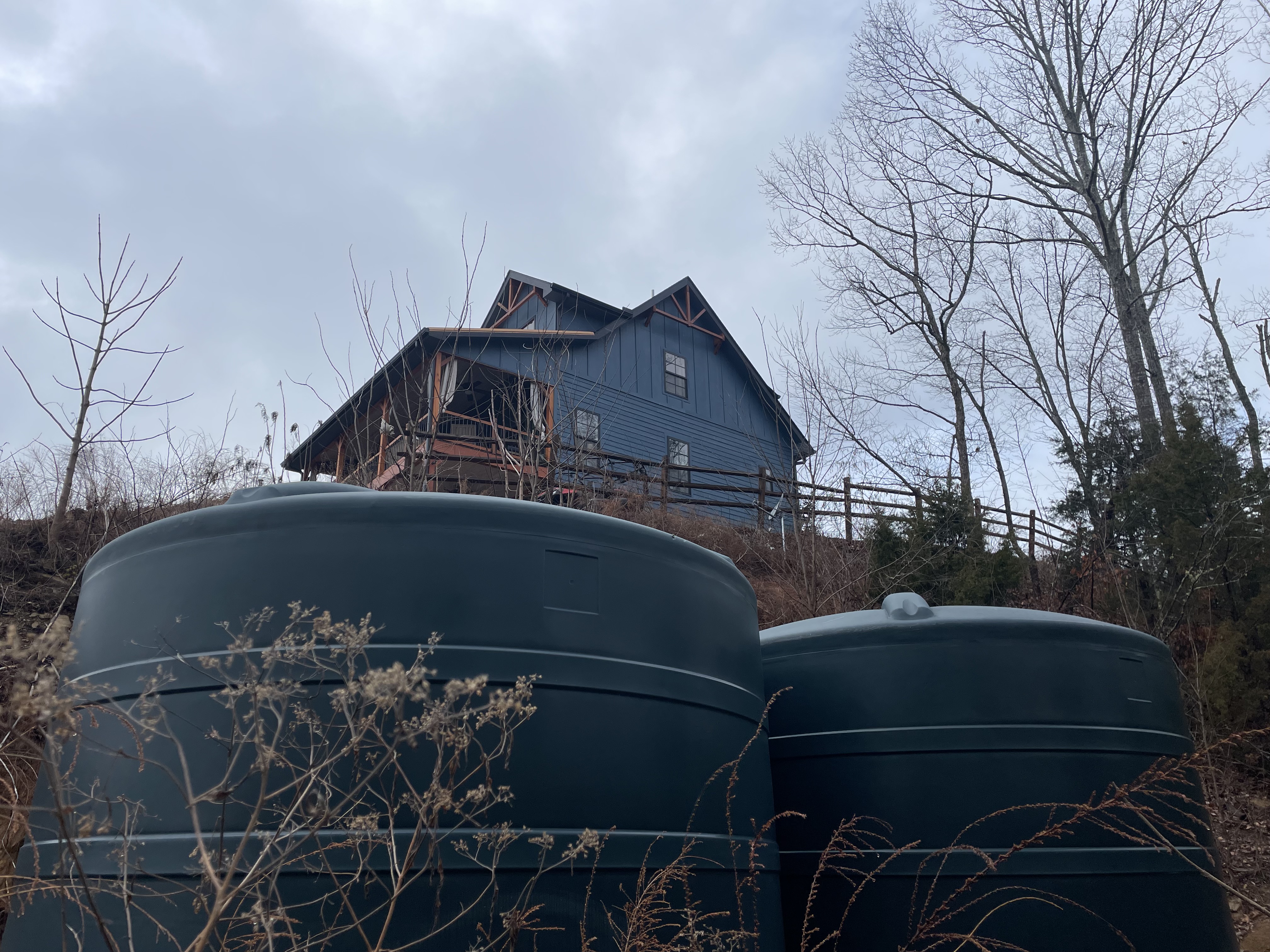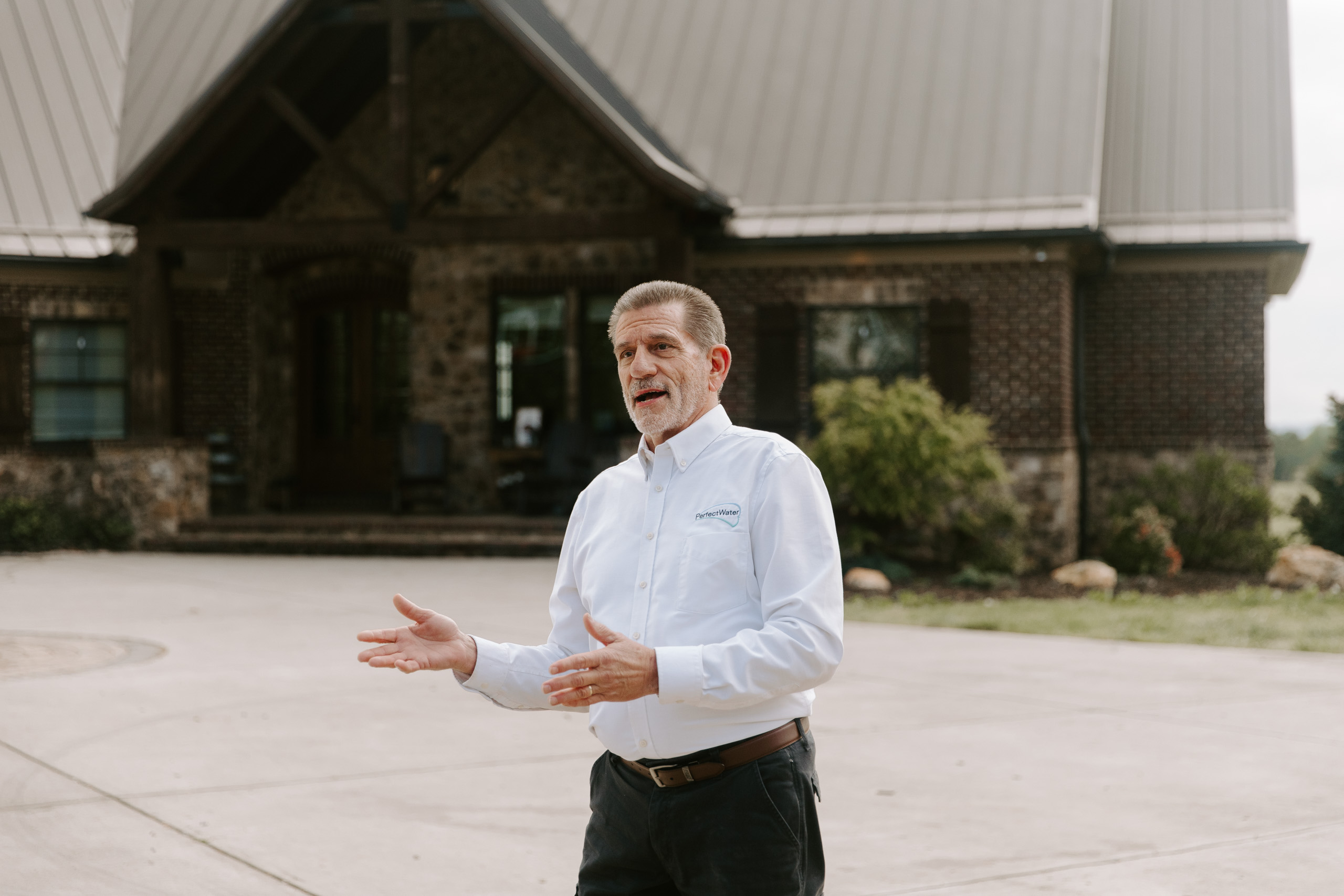Why Homeowners are Choosing Advanced Rainwater Cisterns for their Water Supply

Water is becoming more of a concern in many places. For some people, alternatives to grid water...or backups when supply is unreliable...are vital. More and more homeowners are resorting to advanced rainwater cisterns either as a primary water supply or as a backup.
How Do Advanced Rainwater Cisterns Work?
In the old days, people would use a simple barrel to capture rainwater for irrigation. Advanced rainwater cisterns are designed to allow captured rainwater to be used for everything, including drinking. So, how do these systems work?
The cistern captures the rain that falls on your roof and routes it through pipes into a storage tank or tanks. On the way, the water passes through filters. The storage system is designed to keep the water free of slime and odor. As the amount of water can't always be controlled, the tank is fitted with an overflow device that is designed to keep bugs out.
When you need the water it is pumped out of storage and through a filtration system that makes it potable. This is similar to the pumps used for well water, but rainwater cisterns aren't as impacted by underground conditions such as high iron in the soil.
Is the Water Really Drinkable?
Yes. Rainwater is typically cleaner than well water or ground water when it is captured before hitting the ground. The water is then passed through a variety of filters and UV light treatment. Modern systems will switch to a backup source automatically if there's any failure.
This produces water that is clear and drinkable and doesn't have chlorine or chloride chemicals in it. However, you should bear in mind that this water is not fluoridated and make sure to use a good fluoride toothpaste to reduce the risk of cavities, especially for children.
The water typically tastes good too!
Why do Homeowners Choose Cisterns?
Some homeowners who choose cisterns are living off grid. In fact, for some home sites, they may be the only choice if there is no groundwater close to the surface to dig a well. This can allow for a good water supply in tricky locations. They may also be a good choice if you are building somewhere where wells are more likely to be contaminated, such as close to an old mine. While well water can be excellent, not everyone can dig a good well.
Rainwater cisterns also require little maintenance. A lot of the system works on gravity and physical filtration. Filters do need to be changed regularly and maintenance done on the pump and UV system, but the system is mostly easy to use.
For some homeowners who are on the grid, having a rainwater cistern is a good backup if the water is turned off for any reason. Having a reliable private water supply adds to peace of mind for many people. Rainwater cisterns can also be used as part of a storm control system.
Another advantage of water from rainwater cisterns is that it is safe for any kind of fish without further treatment except the adding of brine for saltwater fish. Some fish fanciers may thus have a cistern to support the fish.
What Maintenance Does the Cistern Need?
While cisterns are easy to maintain, they do need some basic work. The prefilter needs to be cleaned every couple of months, while the main filter is replaced every six to twelve months per the manufacturers' guidelines. The UV light needs to be replaced once a year.
The pump may need some occasional maintenance.
Are There Regulations About Cisterns?
Depending on where you are, possibly. If you are including a cistern in a new build, you may need a permit, both to check compliance with any local laws about rainwater harvesting and to ensure that your system is safe.
You may also need a permit to cross connect between a private source and a public utility, which is the case if you are using rainwater as a backup system or for specific purposes.
Thankfully, we know how to handle this and can get all of the permits you need sorted, and our systems are up to code and safe.
Do You Need to Redo All of Your Plumbing?
No. Cisterns can connect to standard plumbing systems, although we do recommend replacing lead pipes in older homes when you can. There are no challenges in most situations and we can have the cistern hooked up without any additional work.
What Technologies Make These Cisterns Advanced?
The big advance is modern filtration that allows rainwater cisterns to satisfy all of your water needs and produce high-quality potable water. UV light purification combined with filters means that any bacteria living on your roof will not make their way into your water.
These cisterns are also more efficient and last longer compared to older technology. They need less maintenance due to improved technology and research on best practices. These are not "rain barrels" but proper private water systems that can be relied on to provide water for drinking, washing, cooking, and hygiene.
What Myths or Misunderstandings Exist?
The big one is that it's illegal to harvest rainwater for your own use. There are no laws against it at the federal level. Most states also have no restrictions, and some states are even offering incentives. In some states it is illegal to drink harvested rainwater or, at least, the health code advises against it. This is obviously an artifact from when rainwater systems were typically not safe.
You should also check local guidelines.
Another myth is that rainwater is "recycled" water. In fact, rainwater is typically very pure until it hits a surface, making it very good water that requires little filtration if done correctly. Modern rainwater cisterns harvest from the roof only because that reduces contamination, although it does not eliminate it. Advanced filtration systems take care of the rest.
If you are tired of high water bills, are building in a location where a well is impossible or inadvisable, or need reliable water for those times when the utilities (or mother nature) let you down, PerfectWater can help. Our modern cistern systems produce sufficient potable water for your household with only minor maintenance needed. Contact us to find out more and discuss your project.
Ready to Take Control of Your Water Supply?
Don’t wait for water shortages or unreliable sources to disrupt your life. With our Rainwater Harvesting systems, you can enjoy a sustainable, reliable, and completely self-sufficient water solution tailored to your home’s needs.

